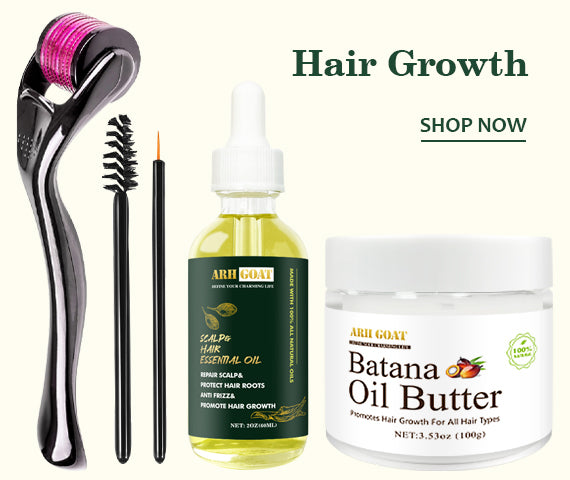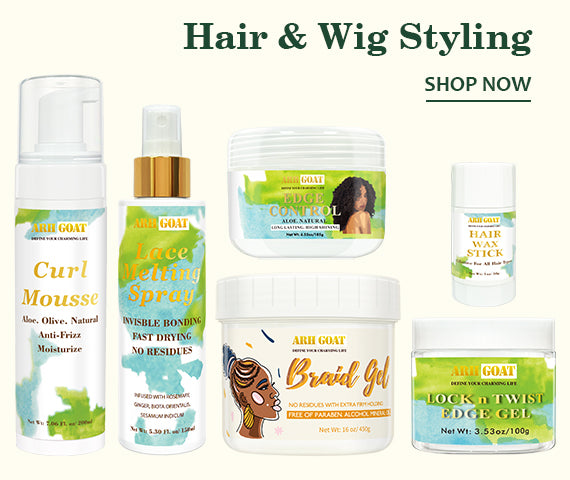Introduction
The Significance of Healthy Hair:
Healthy hair boosts attractiveness and health. In many places, hair indicates identity and culture. Shiny, robust, well-kept hair means health and vitality. It symbolizes youth, beauty, and self-expression. Healthy hair benefits more than beauty. It may imply health. Unruly, damaged, or thinning hair may suggest illness.Self-confidence Suffers with Hair Loss:
Lost hair may drastically lower self-esteem and confidence. Hair loss may be stressful. Losing a culturally and individually meaningful physical trait may impair self-esteem. Beauty self-consciousness may hurt relationships and quality of life. Preventing hair loss is vital since it may bring shame, self-doubt, and despair.Learning and using effective preventive methods is crucial since healthy hair is vital, and hair loss may be emotionally stressful. These holistic treatments prevent hair loss and enhance hair health. This book covers scalp care, nutrition, lifestyle modifications, hair care, and preventive measures such as building fibers and growth oil. A comprehensive hair health regimen may prevent hair loss, boost confidence, and increase well-being.
Understanding Hair Loss
Types of Hair Loss:
Androgenetic Alopecia:●Men or women with androgenetic alopecia lose hair more often. Mostly genetic and hormone-driven, it affects men and women.
●It causes widespread hair loss in women and gradual hair thinning and receding hairlines in men.
●Hormonal imbalances, especially DHT, cause this hair loss.
Telogen Change:
●Telogen effluvium is often induced by intense stress, illness, delivery, or treatment.
●More hair follicles enter the resting phase during telogen effluvium, causing hair loss.
●This condition usually reverses hair loss after treatment.
Alopecia Areata:
●Alopecia areata, an autoimmune disorder, produces slight, circular hair loss owing to immune system misattacks.
●Environmental and genetic factors may cause alopecia areata.
●Some hair regrows spontaneously, but severe cases may need treatment.
Traction Alopecia:
●Hair loss from tight ponytails, braids, and extensions is traction alopecia.
●Avoid tight hairstyles and allow hair follicles to recover to avoid this hair loss.
Hormonal Imbalances:
●PCOS and thyroid disorders may cause hair loss.
●Unbalanced hormones impact hair growth.
Common Causes and Triggers:
Many reasons may cause or aggravate hair loss:1. Stress may induce telogen effluvium and other hair loss.
2. Iron, biotin, and protein deficits may cause hair loss.
3. Chemotherapy may cause hair loss.
4. Hot equipment, chemicals, and tight trims may damage hair.
5. Aging: Hair may thin and lose density.
6. Air pollution and UV rays may harm hair.
Signs of Hair Loss:
Prevention and treatment of hair loss need early detection. Common signs:1. Hair on pillows, shower drains, and hairbrushes is excessive.
2. Hairline reduction: Temple or crown.
3. Thin Hair: Scalp visibility and partial hair loss.
4. Bald patches: Uneven scalp or body hair loss.
5. Hair brittleness or dryness.
6. Itchy scalps may signal hair loss issues.
Scalp Care
Scalp Health: Hair Loss Prevention
Healthy hair growth begins in the scalp. It prevents hair loss and protects follicles. Here are some ways a healthy scalp might prevent hair loss:1. A healthy scalp gives hair follicles essential nutrition.
2. Bristles get oxygen and nutrients from good scalp blood circulation, promoting their health and activity.
3. Hair follicles function better after scalp cleaning and balancing.
4. Better scalps minimize inflammation and irritation, which may damage hair follicles.
Choice of Scalp Oil:
Coconut, Argan, and Jojoba oils benefit scalps:●Coconut Oil: Coconut oil penetrates hair to decrease protein loss and breakage. Its antimicrobial properties benefit scalps.
●Antioxidants and essential fatty acids in argan oil hydrate and nourish the scalp and hair, reducing dryness and damage.
●Jojoba Oil: This oil balances scalp oiliness and dryness by mimicking scalp sebum.
Hair Care
Haircare Product Selection:
Hair Type-Friendly Shampoos & Conditioners:●Hair health requires the correct shampoo and conditioner for your hair type. Fine, oily hair may require clarifying treatments, while thick, curly hair may need hydrating.
●Sulfate-containing shampoos may dry and damage hair by depriving it of natural oils.
Hair Volumizing Fibers:
●In thinning or bald areas, innovative hair-growing fibers rapidly enhance volume and thickness.
●Keratin-based fibers provide fullness and naturalness to hair.
●They thicken hair without surgery.
The Right Way to Wash and Dry:
Washing and drying properly prevents damage and hair loss:When shampooing, massage the scalp gently to avoid weakening hair. To prevent scalp and hair dryness, use lukewarm water.
Conditioning: Conditioning lengths and ends prevent scalp weight.
Instead of rubbing, pat hair dry with a soft towel. Stay clear from high hairdryer heat settings to prevent heat damage.
Avoiding Over Styling and Heat Damage:
Heat and over-styling may cause hair loss:Reduce flat and curling iron use. Apply heat protectant spray on hair.
Avoid tight ponytails, braids, and hair extensions that stress follicles.
Chemical treatments: Coloring and perms damage hair, so use them sparingly.
Hair Accessories and Health:
Hair health may be affected by sound and harmful accessories:Avoid Metal Accessories: Tight hairpins and clips may damage hair and make the scalp itchy. Fabric or plastic is softer.
Avoid traction alopecia by using fabric or silicone-coated hair ties and without pulling hair too tight.
Protect your hair and scalp with hats or UV-protective hair products.
Lifestyle and Habits
Stress and Hair Loss:
Stress may damage hair and induce telogen effluvium and alopecia. Pressure may rest hair follicles, causing hair loss. Understanding how stress causes hair loss is essential for prevention:Stress hormones: High cortisol levels may damage hair follicles.
Trichotillomania and scalp scratching may hurt and induce stress-related hair loss.
Surgery, illness, and emotional strain may cause temporary hair loss.
To avoid stress-induced hair loss, control stress:
●Relaxation: Yoga, meditation, and deep breathing reduce stress and promote health.
●Regular exercise lowers stress, anxiety, and mood.
●Organization and prioritization alleviate stress from excessive tasks.
●Talk to a therapist or counselor about stress management.
Limit Smoking and Drinking:
Smoking and excessive drinking may damage and loss of hair:●Smoking reduces hair follicle oxygen and nutrient circulation. Adds hair- and scalp-damaging chemicals.
●Drinking too much alcohol dehydrates the body, leaving hair dry and brittle. Nutrient absorption and hormone balance may suffer.
Exercise Promotes Hair Growth:
Regular exercise boosts hair and health:●Exercise increases blood circulation, oxygenating and nourishing the scalp and hair follicles to develop hair.
●Management: Exercise lowers stress-related hair loss.
●Exercise controls insulin and androgens, which impact hair.
Sleep Quality and Importance:
General and hair health depends on good sleep:●Deep sleep produces growth hormones for hair growth and repair.
●Sleep heals hair follicles and other cells.
●Reducing stress and mental well-being via rest reduces hair loss.
Innovative Prevention and Treatment
Medication and Treatment:
In severe hair loss, medication, and medical interventions may prevent and promote hair growth. Some common options:Minoxidil: This over-the-counter topical medication regenerates androgenetic alopecia hair follicles. It's liquid and foam.
Finasteride treats male pattern baldness. It prevents testosterone from forming hair-loss-causing DHT.
Low-level lasers boost scalp blood flow and hair follicles in LLLT. Home laser combs and in-office treatments are available.
PRP Therapy: Blood is extracted, processed to concentrate platelets, and injected into the scalp. Growth factors from platelets boost hair growth.
Dermatologists may prescribe spironolactone or dutasteride for hormonal hair loss.
Surgery, including Hair Transplants:
Significant hair loss is treated permanently by surgery. Some common options:Hair transplantation: Back-of-the-scalp hair follicles are transplanted into bald areas. This therapy produces natural, long-lasting results.
Scalp reduction surgery eliminates bald skin and extends hair-bearing skin to cover it. Modern methods reduce its appeal.
Scalp Micropigmentation (SMP): This non-surgical technique tattoos scalp pigments to mimic hair follicles. They are used to imitate a close shave.
Consult Dermatologist:
If you're losing hair and considering advanced prevention and treatment, consult a dermatologist who handles hair and scalp problems. Dermatologists may prescribe medicines, advanced treatment, or surgery.Comprehensive Assessment: Dermatologists assess hair loss and its causes by examining your scalp and medical history.
Dermatologists may tailor a treatment plan to your needs after analyzing you.
Monitoring Progress: Dermatologists can track and adjust your therapy for the best outcomes.
Homemade Treatments
Hair Growth Natural Remedies:
Natural hair growth products are economical, accessible, and chemical-free. Therefore, many people pick them. Although outcomes vary, some natural remedies may improve hair health and growth:Aloe vera gel enzymes improve scalp health and hair growth. It naturally conditions hair to be smooth and shiny.
Sulfur-rich onion juice boosts hair development by increasing blood flow to hair follicles. Though smelly, it has benefits.
The ricinoleic acid in castor oil increases scalp blood flow and hair follicles. Fuller, longer hair is often treated naturally.
Antioxidants in green tea promote hair growth and reduce hair loss. It can be washed or used in hair masks.
Coconut Milk: Coconut milk provides hair-building lipids and proteins. Use it to mask or condition hair naturally.
Homemade Hair Masks and Treatments:
You may create homemade hair masks and treatments for your hair type. Some popular options:Egg Mask: Protein and biotin in eggs grow hair. Using beaten eggs and olive oil as a mask may provide nutrients.
The avocado mask gives you vitamins, minerals, and healthy lipids—mash avocado with honey and olive oil for a nutritious hair mask.
Banana and Honey Mask: Honey moisturizes, and bananas nourish—hair masks with ripe bananas and honey water.
Yogurt's lactic acid cleanses and honey hydrates. These two create a fantastic hair treatment.
The proteins and nicotinic acid in this mask strengthen and grow hair. A hair mask may be made from soaked fenugreek seeds.
Becoming Consistent and Patient
Consistent Hair Care:
Maintaining and improving hair demands persistence. Hair growth and loss prevention need regular hair care. Why consistency counts:1. Food and supplements provide essential nutrients for hair follicle growth.
2. Scalp Health: Regular massage and scalp care promote hair follicle circulation and nourishment.
3. Treatment efficacy: Pharmaceutical and natural hair loss therapies take time to work. Consistency gives these treatments a chance.
4. Prevention: Proper hair care prevents damage and loss.
Setting Reasonable Goals:
Realistic expectations assist you in reaching hair growth or loss prevention goals. Effective expectation management:1. Time: Hair develops gradually. Non-surgical treatments may take months to work.
2. Know that genetics impact hair thickness and growth. Genetics may limit hair quality.
3. Results vary by person and treatment. Someone's answer may not work for another.
4. Healthy hair goals should be reasonable. You might want healthier, manageable hair, not long or thick.
Tracking Progress:
Tracking your development motivates and guides hair care decisions. Successfully measuring hair health:1. Photographs: Track hair growth with frequent photos. Comparing pictures may indicate everyday changes that are hard to see.
2. Record your hair care, treatments, and changes in a hair diary.
3. Measure your hair length sometimes if you wish to grow it.
4. Dermatologists and hair specialists may assess your development and treatment effectiveness at regular consultations.
Conclusion
A diversified strategy is needed to maintain healthy hair and prevent hair loss. Healthy hair affects self-esteem, confidence, and well-being beyond appearance. Understanding hair loss forms, causes, and early warning signs is essential to preventing and promoting hair health. A holistic preventative strategy comprises providing optimal scalp care and nutrition. Use the correct scalp oils, natural cures, and hair growth products. This journey requires hair care products and suitable washing and style practices.Stress management, quitting smoking and drinking, regular exercise, and decent sleep help hair health. Medication, medical therapies, hair transplants, and dermatologist consultation provide more specialist techniques for severe hair loss.
DIY hair masks and natural treatments are affordable and efficient ways to develop and preserve hair. Success requires consistency and patience in hair maintenance. Setting reasonable expectations helps you achieve your objectives, while surface ensures you give your hair the proper care and treatments. Photo albums, diaries, and expert consultations may inspire and enlighten you.
The road to healthy, attractive hair and hair loss prevention is lengthy and involves persistence and a holistic approach. Follow the steps in this complete guide to achieve and maintain a vivid, glossy coat that boosts self-esteem, confidence, and quality of life.





